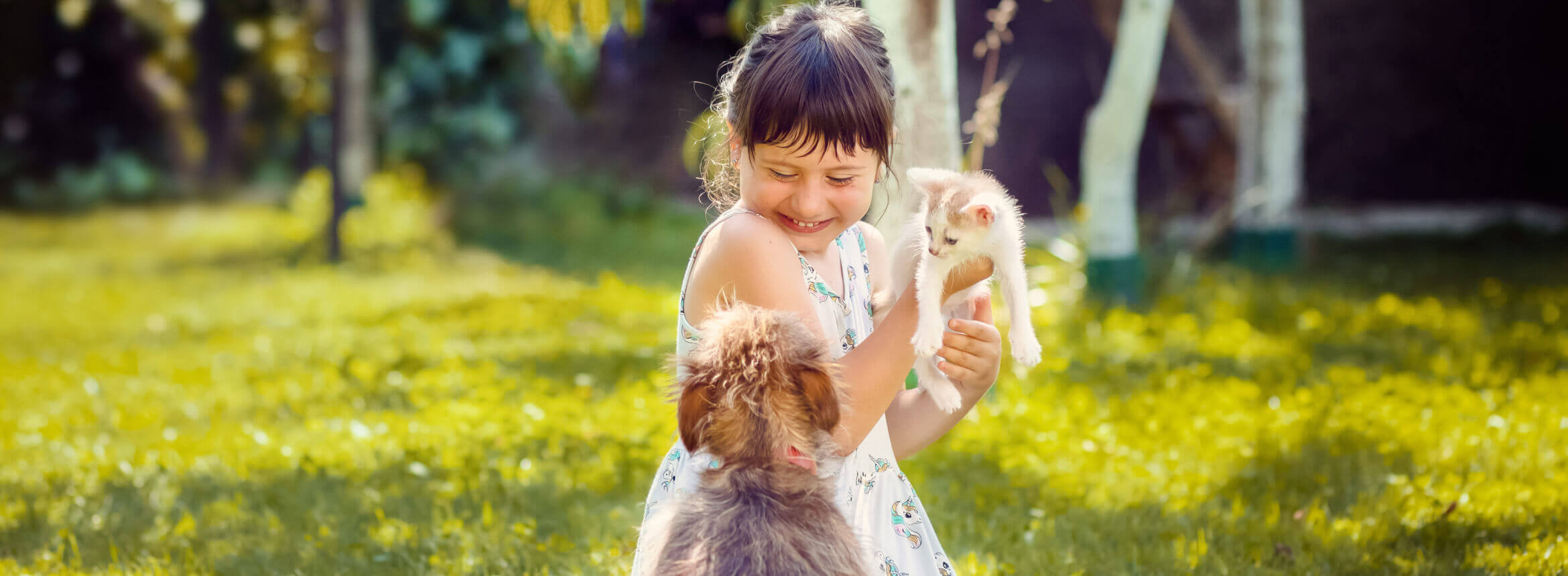Raising pets can be a tall task for anyone. Raising kids? That’s something else entirely. But bringing them up together offers a new set of challenges, factors, and variables. From infants to teens, and from puppies and kittens to seniors, the journey’s always unique.
Having children and animals under the same roof provides an excellent learning opportunity for your little humans and can help set them up for success later in life. Involving and educating them is a great bonding experience for the whole family and helps establish long-term responsible behavior. Let’s break down some of the main things to keep in mind for your young ones and their furry friends.
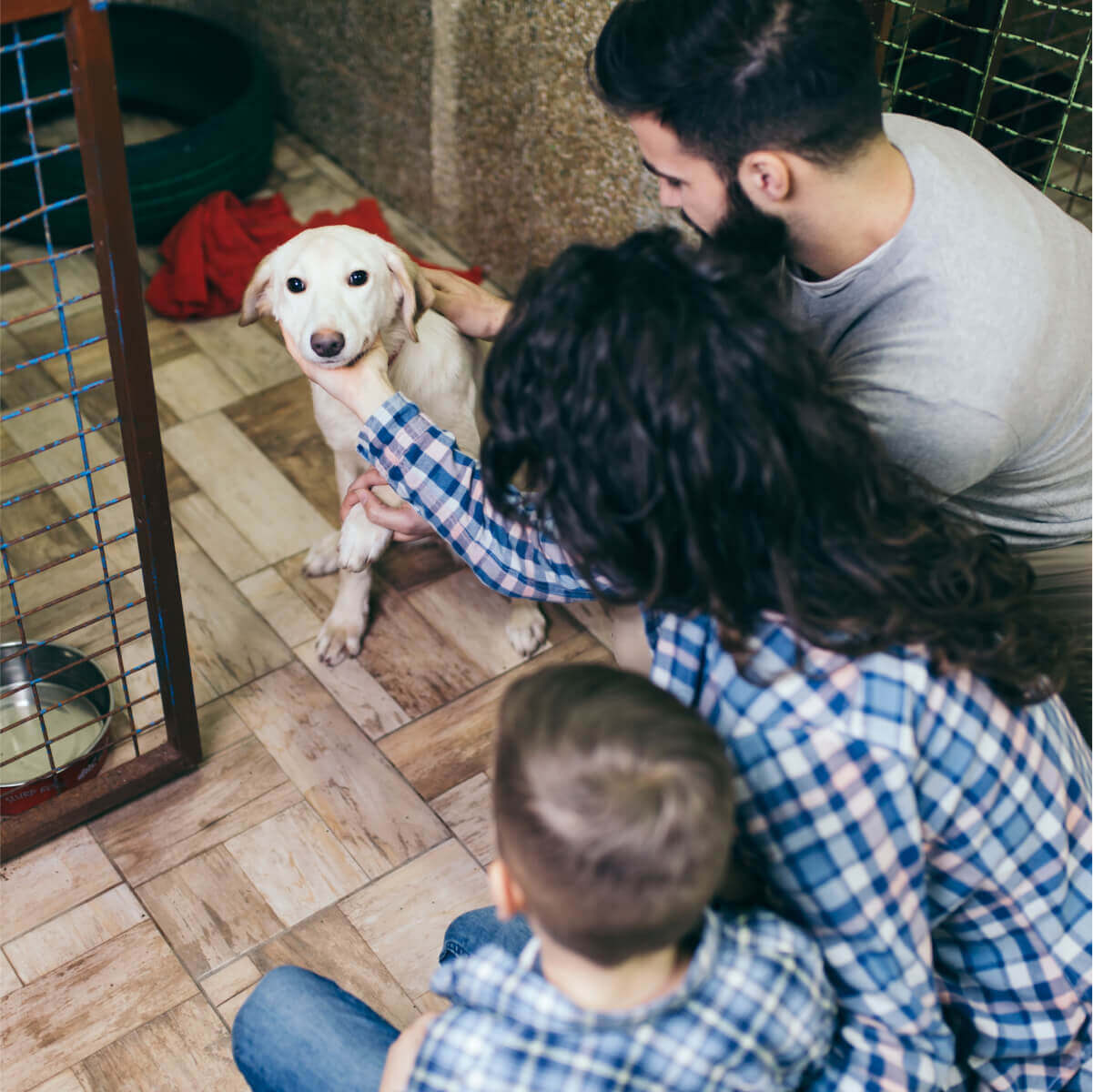
Make them a part of the selection process.
Before you head to the shelter, rescue, or breeder on your own, consider bringing your kids along — no matter how young they are. Getting them involved in this process helps form their relationship with their potential pet and gives them a voice in a crucial decision that will affect them for years.
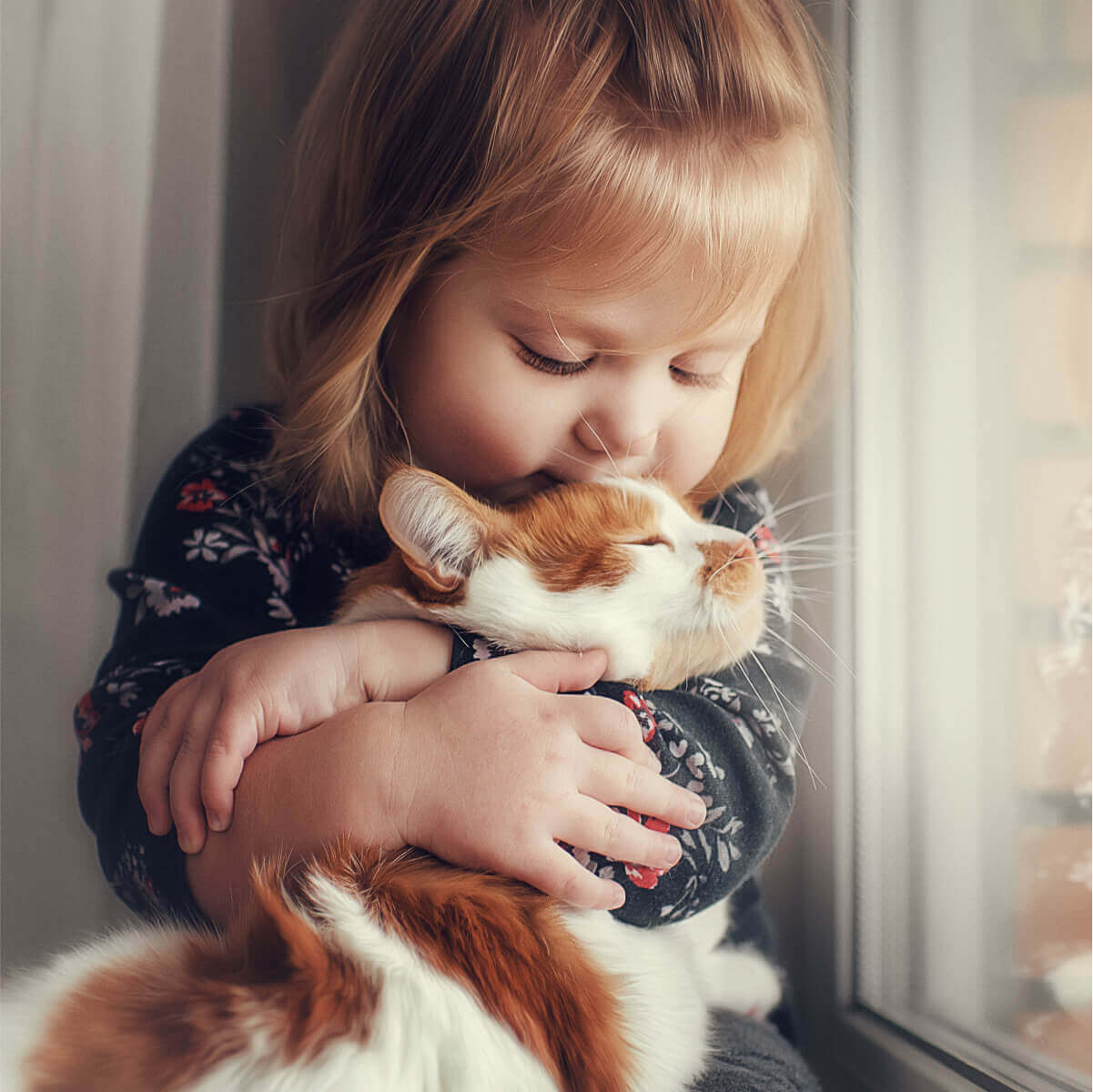
Help them understand the commitment.
When a pet officially becomes part of your family, it’s important to communicate to your kids that this is a long-lasting commitment — the entire life of the cat or dog. The animal’s well-being depends on what you and those in your household do for them.
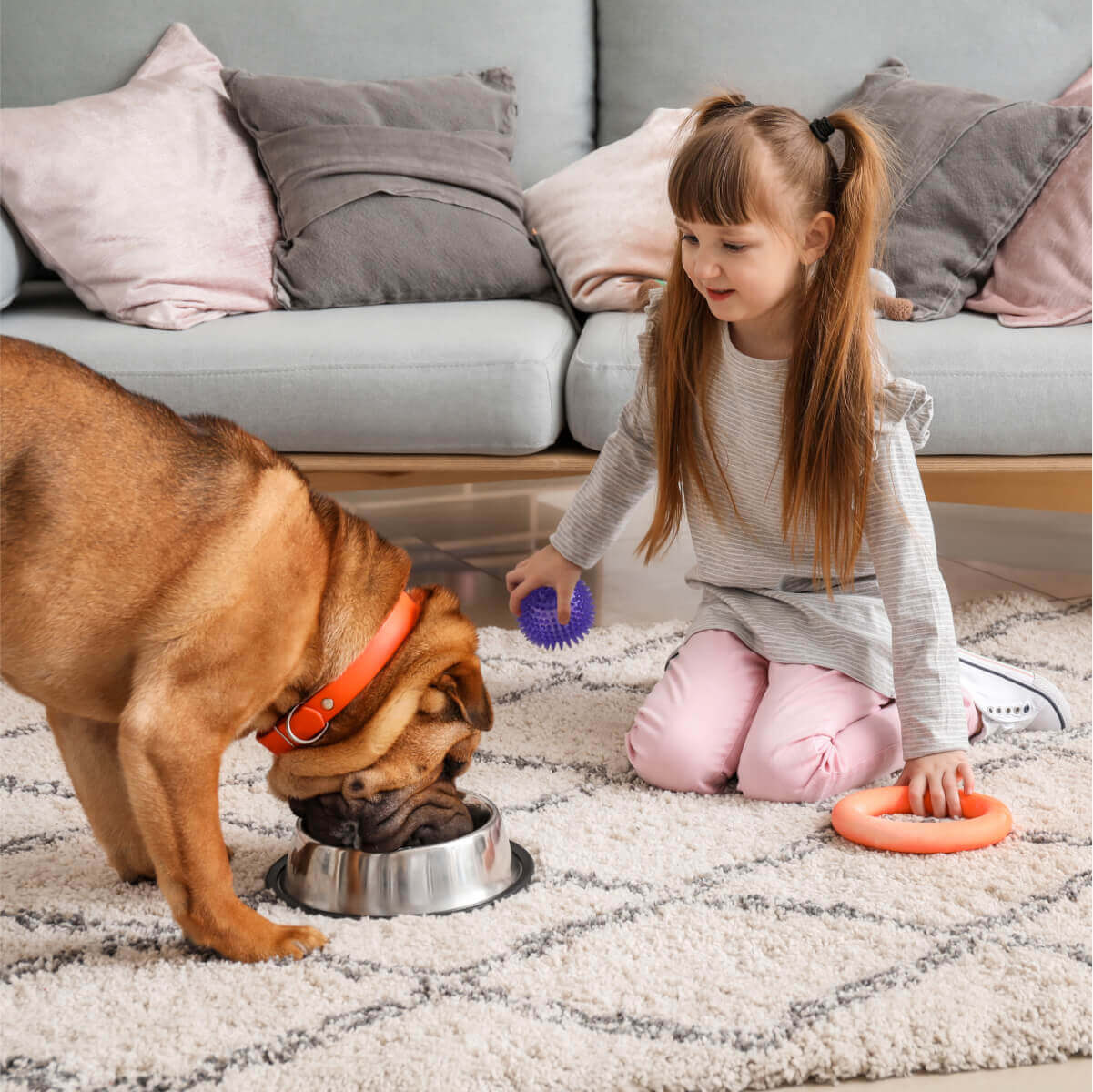
Be clear about daily pet chores and responsibilities.
Get your kids involved in the regular tasks of caring for a pet. It helps to start with smaller things, such as refilling the water bowl, simple grooming, or cleaning up toys. If they’re old enough, assign them the task of walking the dog every day or every other day. If you have multiple children, divide the chores and rotate them regularly.
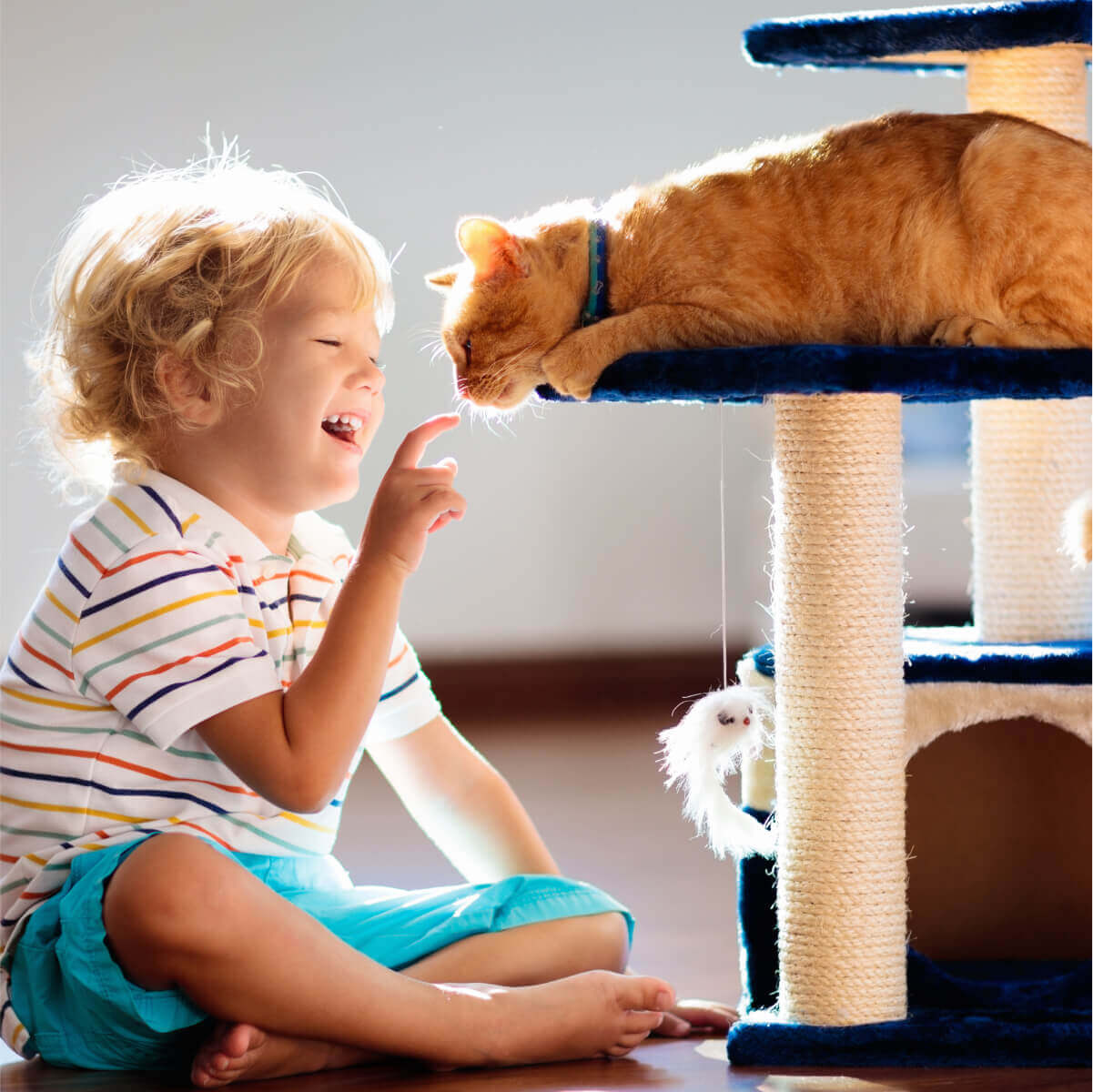
Don’t have them participate in punishment.
This can be tricky, especially if your children witness you or your partner enforcing discipline. However, it can be harmful and establish bad habits if they feel a need to take part in discipline. Offering an explanation of healthy discipline, in the moment, can be incredibly beneficial.
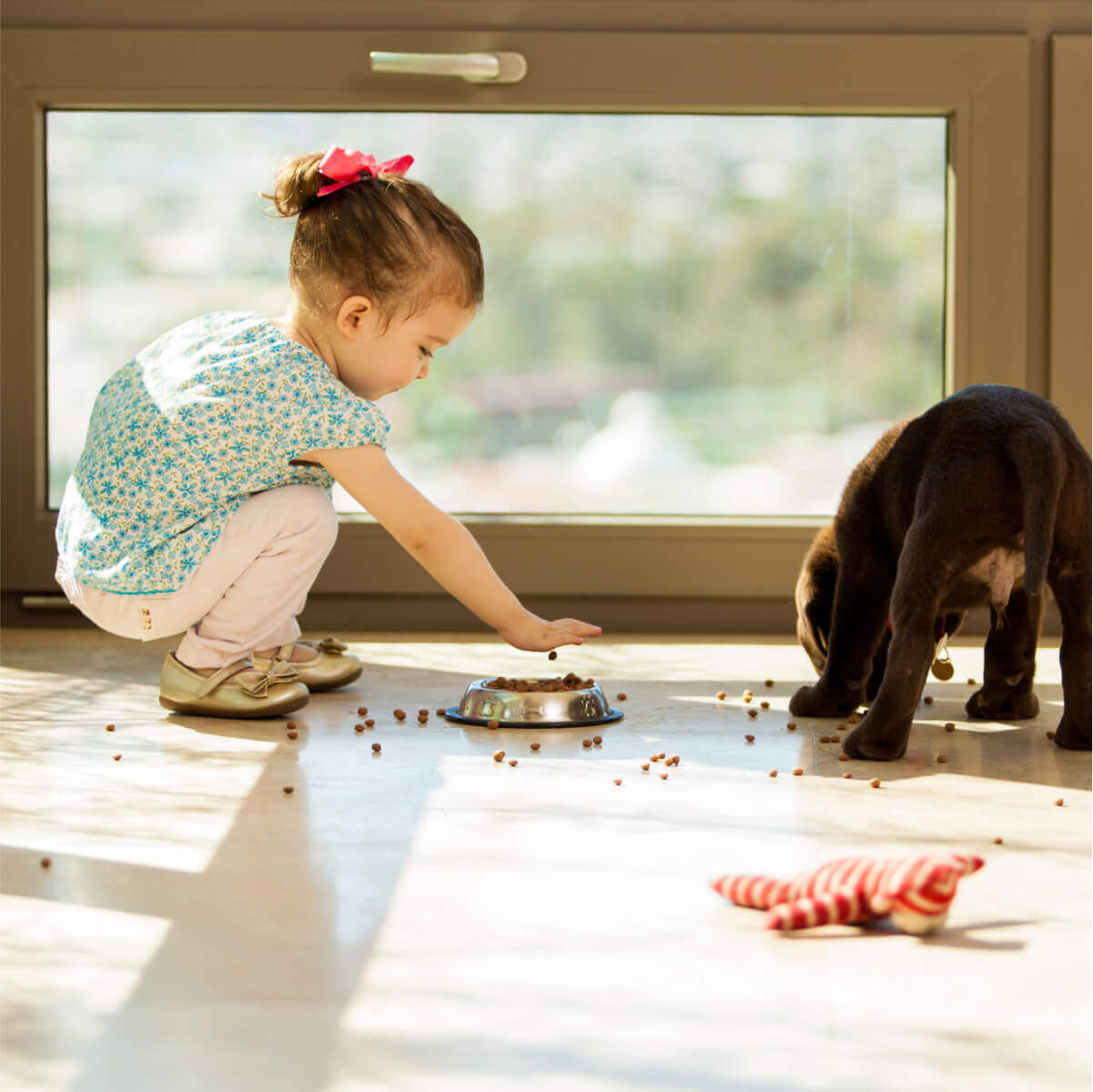
Get them involved in the feeding process.
It can be helpful to explain your thought process behind what goes into your pet’s diet and why you buy the food you do. Depending on your mealtime routine, having your children help out with mixing food and feeding can be an effective way to instill consistent responsibility and foster an understanding of nutrition.
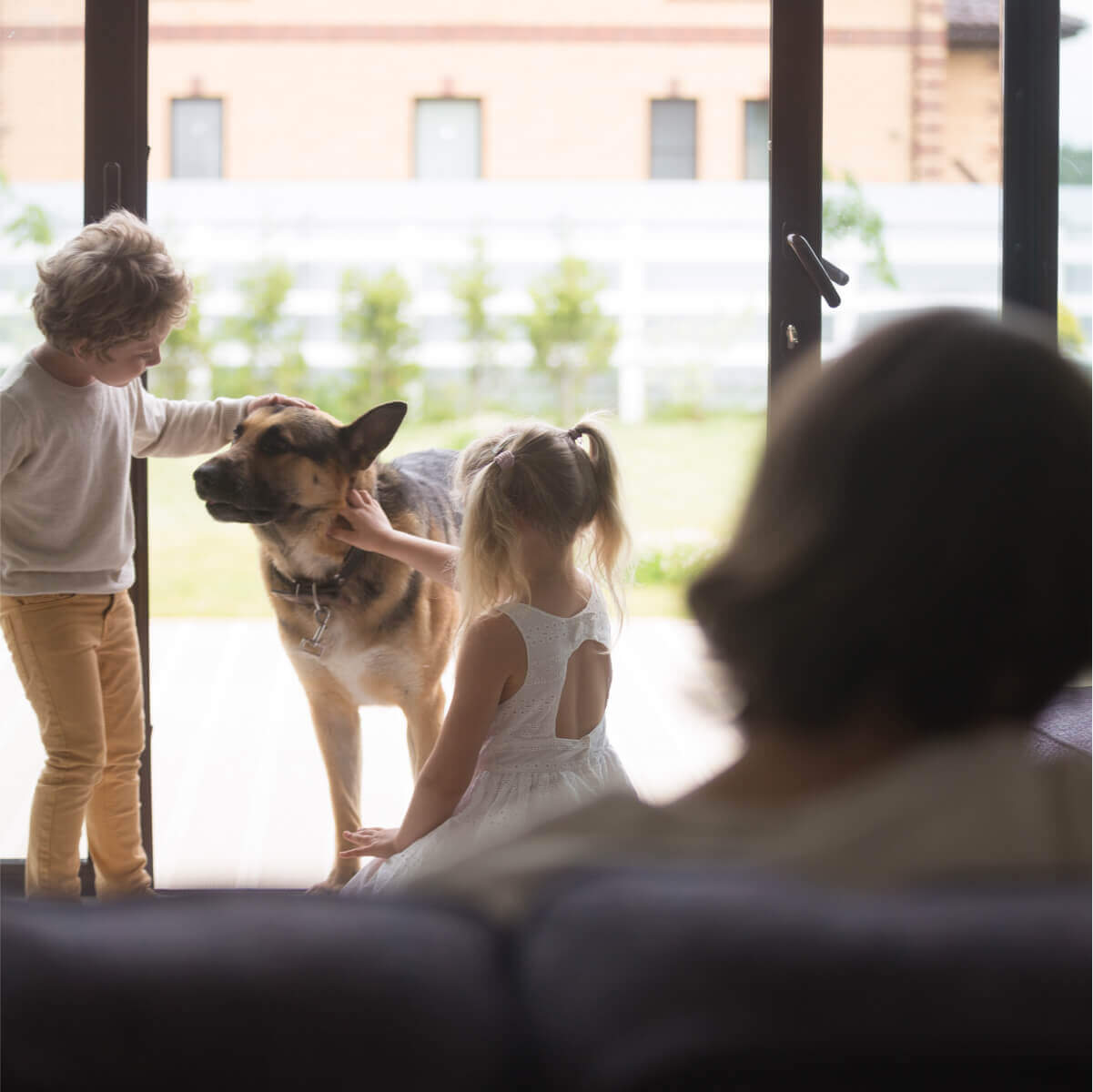
Monitor playtime.
Especially with younger kids, there can be a tendency to roughhouse and potentially overwhelm a cat or dog. Particularly during the initial months with a new pet, it’s important to keep an eye on your little humans and animals when playtime happens.

Teach them to take the lead.
Always remember that humans are the Alphas. This is important for training, behavior, and the overall well-being of the relationship. It's essential to convey this message to your kids — so make sure they understand the need to establish authority in a consistent and responsible manner while guiding and caring for the pet as responsible Pet Parents.

